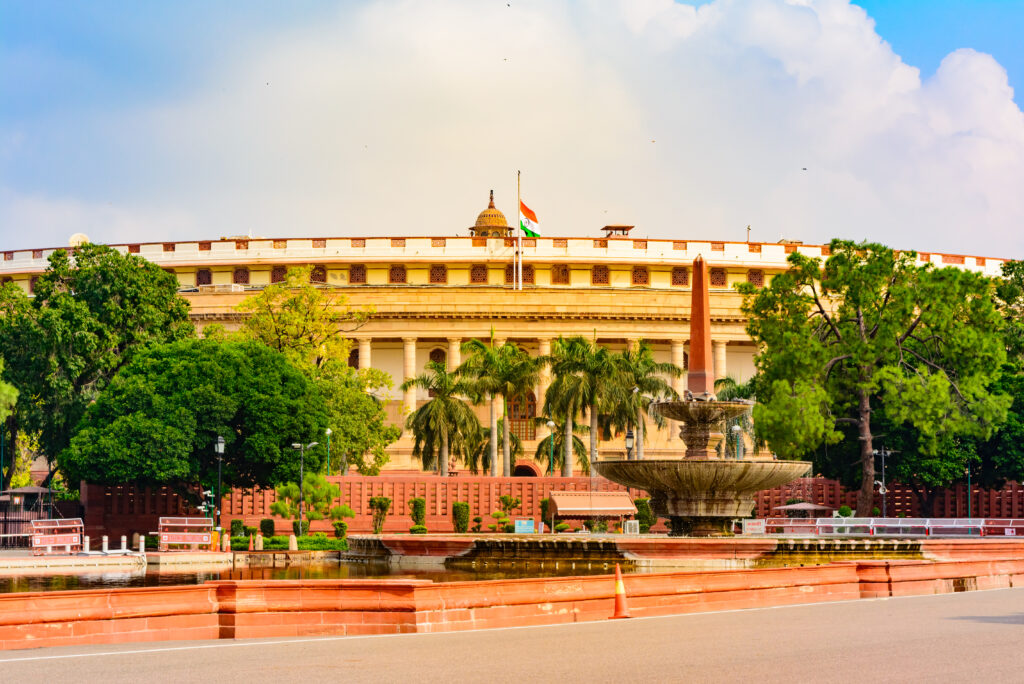India’s Lower House of Parliament has passed the Waqf Amendment Bill – sparking fears among Muslims about the future of their mosques, shrines and charitable endowments.
The bill, introduced by Prime Minister Narendra Modi’s Hindu nationalist government, seeks to include non-Muslims in waqf boards and grants authorities greater control over Muslim land endowments.
While the government claims the amendments will improve transparency and tackle corruption, opposition leaders believe they could be used to seize mosques and other Muslim religious properties in India.
The bill faced strong resistance from the Congress-led opposition, which called it “unconstitutional and discriminatory.” But despite the pushback, it passed with 288 votes in favour and 232 against.
Modi’s Bharatiya Janata Party (BJP) lacks a majority in the Lower House, but support from its allies gave the bill the green light.
The legislation now moves to the Upper House, where lawmakers have begun discussions before it can be sent to President Droupadi Murmu for final approval.
What the bill changes
Subscribe to our newsletter and stay updated on the latest news and updates from around the Muslim world!
The bill amends the 1995 Waqf Act, which governs Muslim charitable endowments in India.
Waqfs — land and property donated for religious or social welfare — cannot be sold or transferred and are traditionally managed by state-level waqf boards composed solely of Muslims.
The proposed changes mandate non-Muslim members on waqf boards, who the government says will oversee administrative matters without interfering in religious affairs.

Additionally, the bill introduces new land ownership rules, requiring waqf boards to seek approval from district officials to validate property claims.
Critics argue that this increased government oversight could pave the way for authorities to challenge waqf claims and strip Muslims of historically significant properties.
Home Minister Amit Shah supported the bill, insisting that non-Muslim board members would only ensure legal compliance and proper use of waqf funds.
“The non-Muslim members will oversee the administration’s compliance with the law and the appropriate utilisation of funds,” he said during the intense 12-hour parliamentary discussion.
Opposition and concerns
The bill has been termed “politically-motivated” by Muslim associations and opposition leaders.
Rahul Gandhi, a senior Congress leader, called it a “weapon to further marginalise Muslims.”
One of the key provisions requires official validation of waqf land titles as many historic mosques and shrines were donated centuries ago without formal documentation.
Muslim leaders fear this change will empower Hindu nationalist groups that have long contested the ownership of several mosques, claiming they were built over Hindu temples.
Ali Javed, founder of Nous Network, a policy think tank on minority issues, warned that the bill would have far-reaching consequences for India’s Muslim community. He warned that restricting waqf properties could shrink welfare programs supporting schools, hospitals and orphanages.
“The bill effectively curtails Muslims’ self-reliance and could lead to economic marginalisation,” Javed said. He also raised concerns about a potential transfer of prime waqf properties to corporate entities, prioritising profits over community welfare.
Wider implications
The bill comes at a time when tensions between Hindus and Muslims are rising in India.
Rights groups have accused Modi’s government of fostering anti-Muslim rhetoric and eroding minority rights.
Last month, the U.S. Commission on International Religious Freedom reported a decline in religious freedom in India, citing hate speech and disinformation targeting Muslims during election campaigns.
With Muslims making up 14% of India’s 1.4 billion people, many fear that this bill is another step toward institutionalising second-class citizenship for Muslims.
As the debate continues in the Upper House, all eyes are on whether the bill will become law and how it will shape the future of Muslim endowments in India.























